 myCSUSM
myCSUSMFilm Series and Event Archive
Fall 2021 Events
Chile Rising
Tuesday, November 16, 5:30-8:00 pm

Panelists
- Dr. Cynthia Chávez Metoyer

Dr. Cynthia Chávez Metoyer, Professor of Political Science, joined the CSUSM faculty ranks in 1994. She holds a Ph.D. in Political Science from Northern Arizona University. Dr. Chávez Metoyer’s teaching interests include Latin American Politics, particularly the role of women in development. Her books, Women in the State in Post-Sandinista Nicaragua, and Women Legislators in Central America (co-authored with Michelle Saint-Germain), address the political and economic roles of Latin American women. Dr. Chávez Metoyer served as an international election observer for the Nicaraguan elections in 2001, 2005, and 2011.
Dr. Chávez Metoyer has served in a number of leadership capacities since her arrival to campus, including President of the Latino Association of Faculty and Staff, Academic Senator, Department Chair of Political Science, Interim Program Coordinator of Women’s Studies, and Chair of the Promotion and Tenure Committee. Additionally, Dr. Chávez Metoyer spearheaded the original campus project to honor César E. Chávez with a statue and plaza, and coordinated the 20th anniversary celebration of the statue last spring. Dr. Chávez Metoyer chaired the Hispanic Serving Institute (HSI) Taskforce III, during which time CSUSM applied for and received HSI designation. Dr. Chávez Metoyer has been a faculty mentor since her arrival in 1994.
Dr. Chávez Metoyer is the founding Faculty Director of the University Office of Internships (June 2015). She has worked closely with Academic Senate to develop an academic internship policy for the University and has worked to establish policies and procedures necessary to expand quality internship opportunities to CSUSM students. Dr. Chávez Metoyer served as Interim Chief Diversity Officer and Associate Vice President of Diversity, Educational Equity and Inclusion for eight months (June 2016-January 2017). - Dr. Paola Ometto
 Dr. Paola Ometto is an Assistant Professor of Management in the College of Business Administration at California State University San Marcos. She is passionate about how businesses navigate global environments and the current demand for being more environmental sustainable and socially just. She also researches how communities and institutional factors impact entrepreneurship and corporations. Prior to joining CSUSM, she received her Ph.D. in Strategic Management and Organization at Alberta Business School (University at Alberta) and a Ph.D. in Public Administration from FGV-EAESP (Sao Paulo - Brazil). She has her work published at Research in the Sociology of Organization, Business & Society, and Journal of Social Responsibility. She has presented her work at the Academy of Management Conference and European Group of Organization Studies.
Dr. Paola Ometto is an Assistant Professor of Management in the College of Business Administration at California State University San Marcos. She is passionate about how businesses navigate global environments and the current demand for being more environmental sustainable and socially just. She also researches how communities and institutional factors impact entrepreneurship and corporations. Prior to joining CSUSM, she received her Ph.D. in Strategic Management and Organization at Alberta Business School (University at Alberta) and a Ph.D. in Public Administration from FGV-EAESP (Sao Paulo - Brazil). She has her work published at Research in the Sociology of Organization, Business & Society, and Journal of Social Responsibility. She has presented her work at the Academy of Management Conference and European Group of Organization Studies. - Dr. Xiaoye She
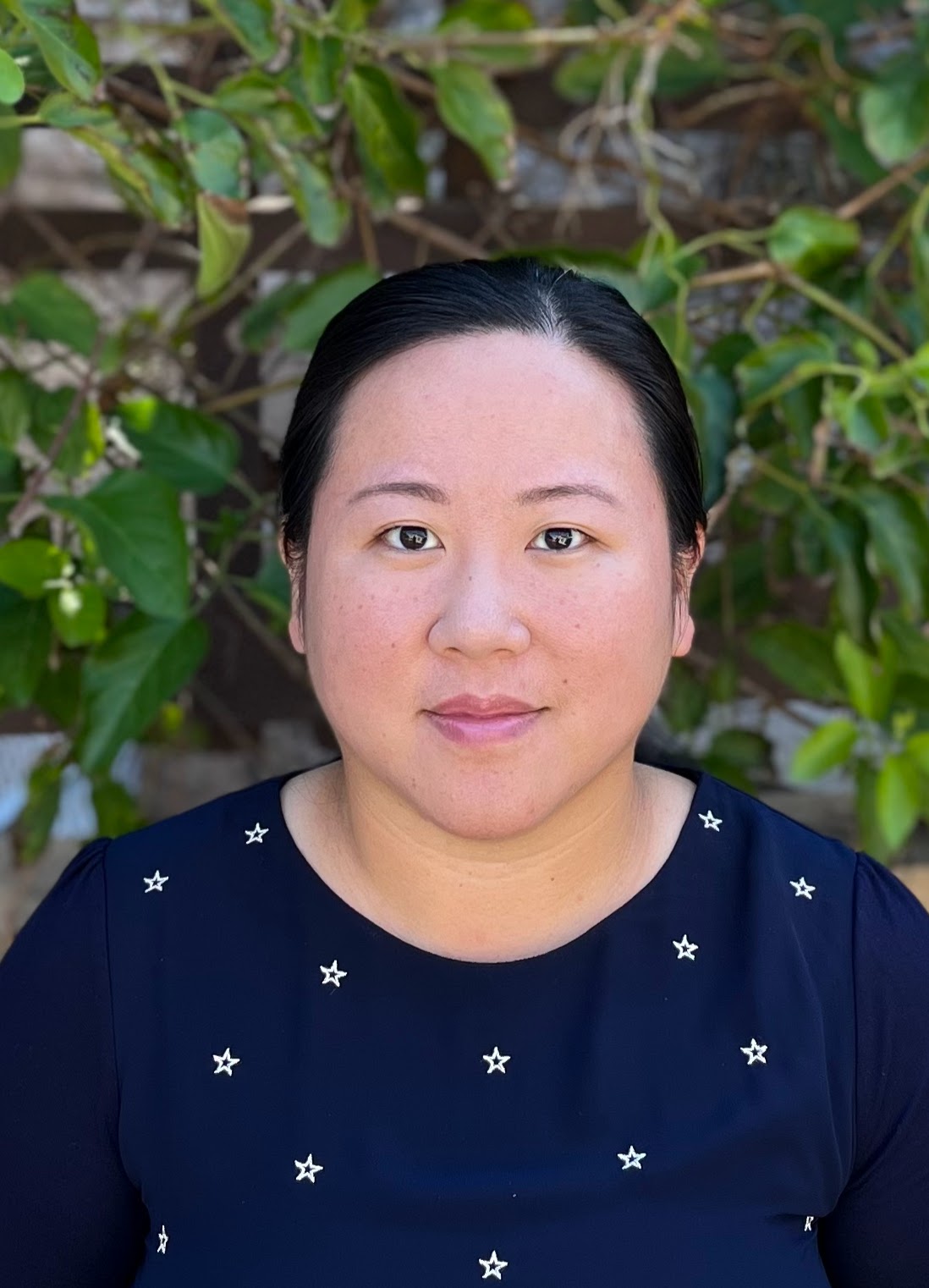
Dr. Xiaoye She is currently an Assistant Professor of Political Science at California State University San Marcos (CSUSM). Her area of expertise is in political economy of development with a regional focus on East Asia and the Pacific. Her current research explores the linkages between national development strategies and international development cooperation in emerging economies from the Global South, together with the resulting structural changes in the global and regional order. Her most recent work includes a just published scholarly monograph titled Understanding Local Agency in China’s Policy Reform, and two forthcoming book chapters on China’s Belt and Road Initiative and Indonesia’s South-South Cooperation strategies. She has published her previous work with Routledge, International Studies Perspectives, Palgrave Macmillan, and E-International Relations.
Before joining CSUSM she has taught at University at Albany (SUNY) and University of Hartford. She also served as a Women & Public Policy Fellow at the New York State government. She teaches courses in international political economy, comparative public policy, global governance and global development, East Asian and Chinese politics, as well as political science research methods. Her interests as a teacher-scholar includes developing and applying simulations and other active learning pedagogies, as well as guiding undergraduate research through her ongoing research projects.
Men sa Lamnè di – Thus Spoke the Sea – Ainsi parla la mer
Panelists:
Virginia Arreola, Ph.D. teaches Spanish for CSUSM. Her work centers on contemporary Caribbean and U.S. Latinx literature and how these texts question hegemonic structures, meaning, and discourse. In particular, her research focuses on how identitarian expressions are used to transcend culturally, socially, and legally constructed borders of nation, state, space, race, gender, and body. As a teacher-scholar, what drives her research is the goal to better understand the complexities of the human experience and to be able to guide students to do the same. Dr. Arreola received her doctoral degree in Literatures in Spanish from Indiana University, Bloomington.
Alyssa Goldstein Sepinwall (PhD, Stanford) is Professor of History at CSUSM. She is a past winner of the Brakebill Outstanding Professor Award and a specialist in Haitian and French history. Her newest book, Slave Revolt on Screen: The Haitian Revolution in Film and Video Games, will be published in June 2021. It includes analysis of several films by Arnold Antonin, the director of Thus Spoke the Sea.
Corine Labridy-Stofle is a native Guadeloupean and a visiting assistant professor of French at Reed College, in Portland, OR. She specializes in contemporary Antillean and postcolonial literatures and is particularly interested in works that deploy laughter strategies and dystopian tropes to signify the effects of mainstream culture on minoritized literary and artistic production. She was the managing editor of La Caricature, 1830–1835, a bilingual catalogue raisonné of the satirical journal’s complete lithographs, and she has written for Public Books, Small Axe and the CLR James Journal.
Gabriel R. Valle is an associate professor of environmental studies at CSUSM. He received his Ph.D. in sociocultural anthropology from the University of Washington in 2016. His research and scholarship involves community-based, collaborative ethnography with a focus on place attachments. Most recently, he has been conducting research on Southern California foodways by exploring the vernacular values of food and food production. He is co-editor of the award-winning book Mexican-Origin Foods, Foodways, and Social Movements, and has been published in Journal of Environmental Studies and Sciences, Environment and Planning E., and Aztlán Journal among others.
“The Haitian Sea as you have never seen or heard it. In this documentary, the Sea tells its story with the Haitian people. Wave after wave, the Sea caresses its riches, unveils its mysteries, and raises a cry of alarm. From the over-exploitation of its resources to the effects of climate change and pollution, the Sea tells you its adventures while immersing you in its different shades of blue. It exposes with frankness and candor the challenges to be taken up and the opportunities to be seized before it is too late. Voodoo priestesses, fishermen, merchants, artists, entrepreneurs, urban planners, historians, biologists, climate experts, all of them children of Haiti, come to be one with their Sea which also gives them a voice in its story. This film is an invitation to travel. An invitation to discovery but also to awareness: Haiti's horizon will be coastal or will not be.”
Questions? Contact Marion Geiger mgeiger@csusm.edu Film Studies Program Coordinator, Film Studies
The CHABSS Global Commitment Committee is pleased to announce our Fall 2020 Film. The spring semester's film, "Into the Dark Web," continues our exploration of the theme "digital frontiers," and focuses on internet surveillance.
Into the Dark Web
Panelists:
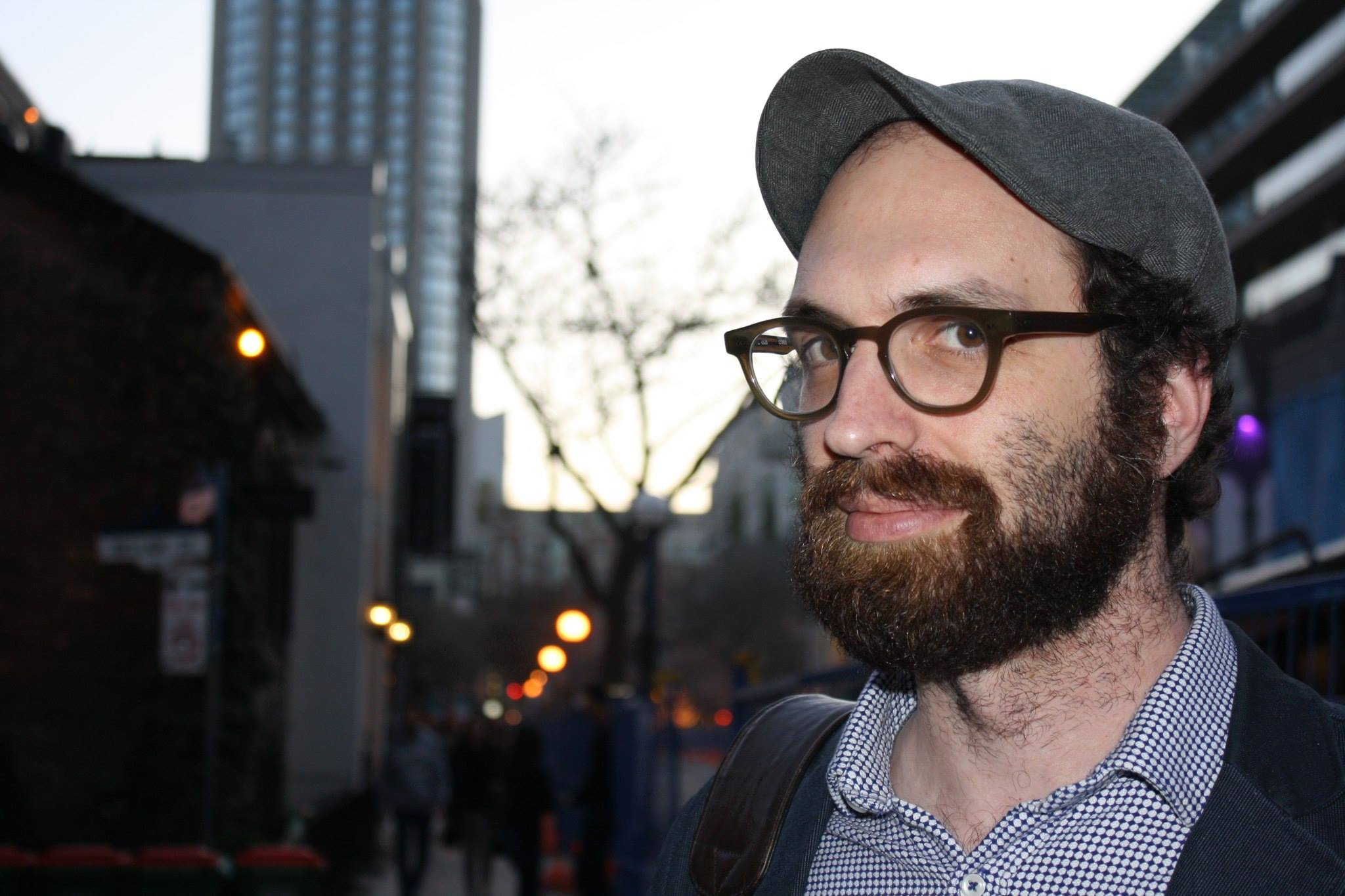
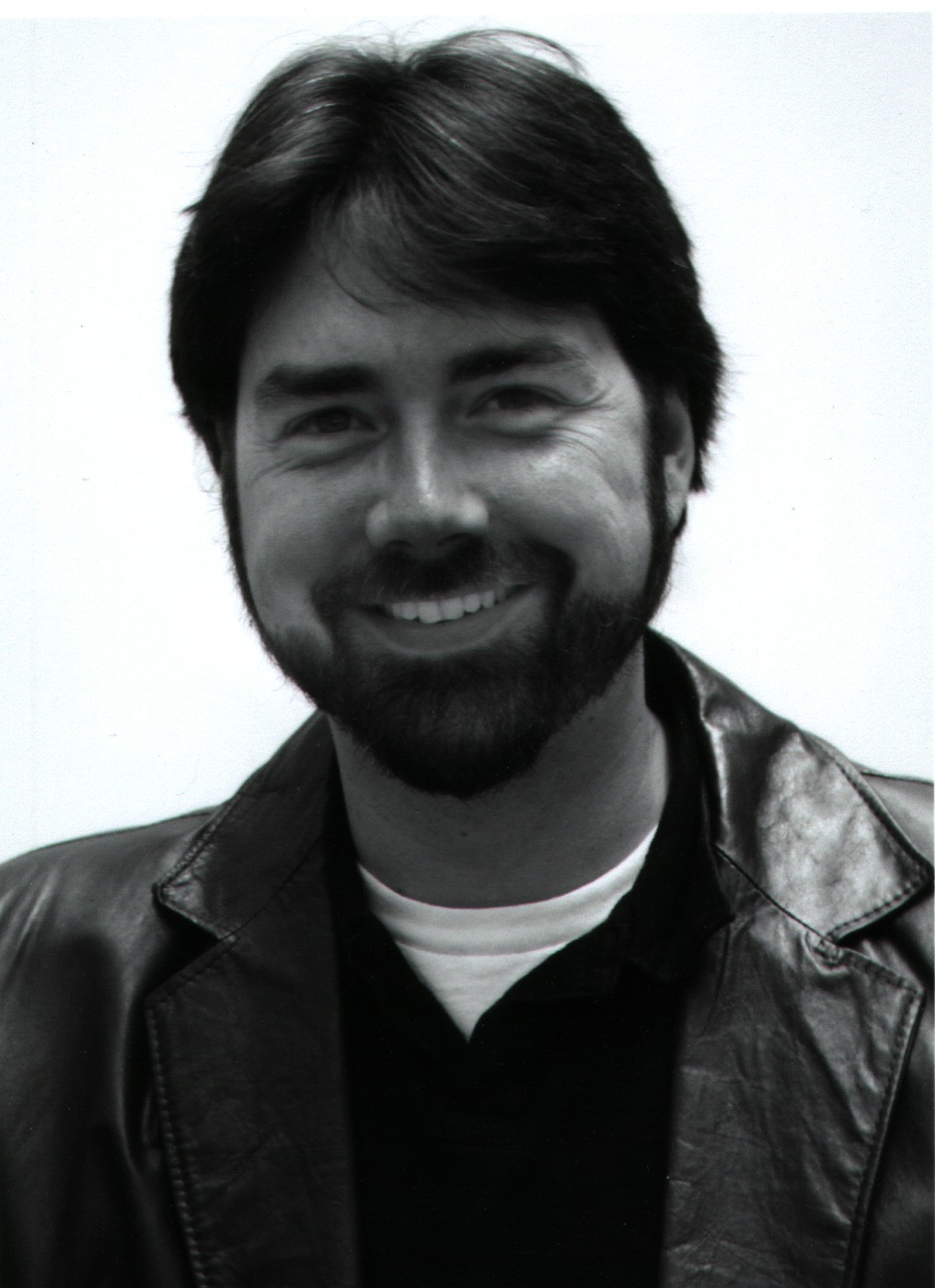
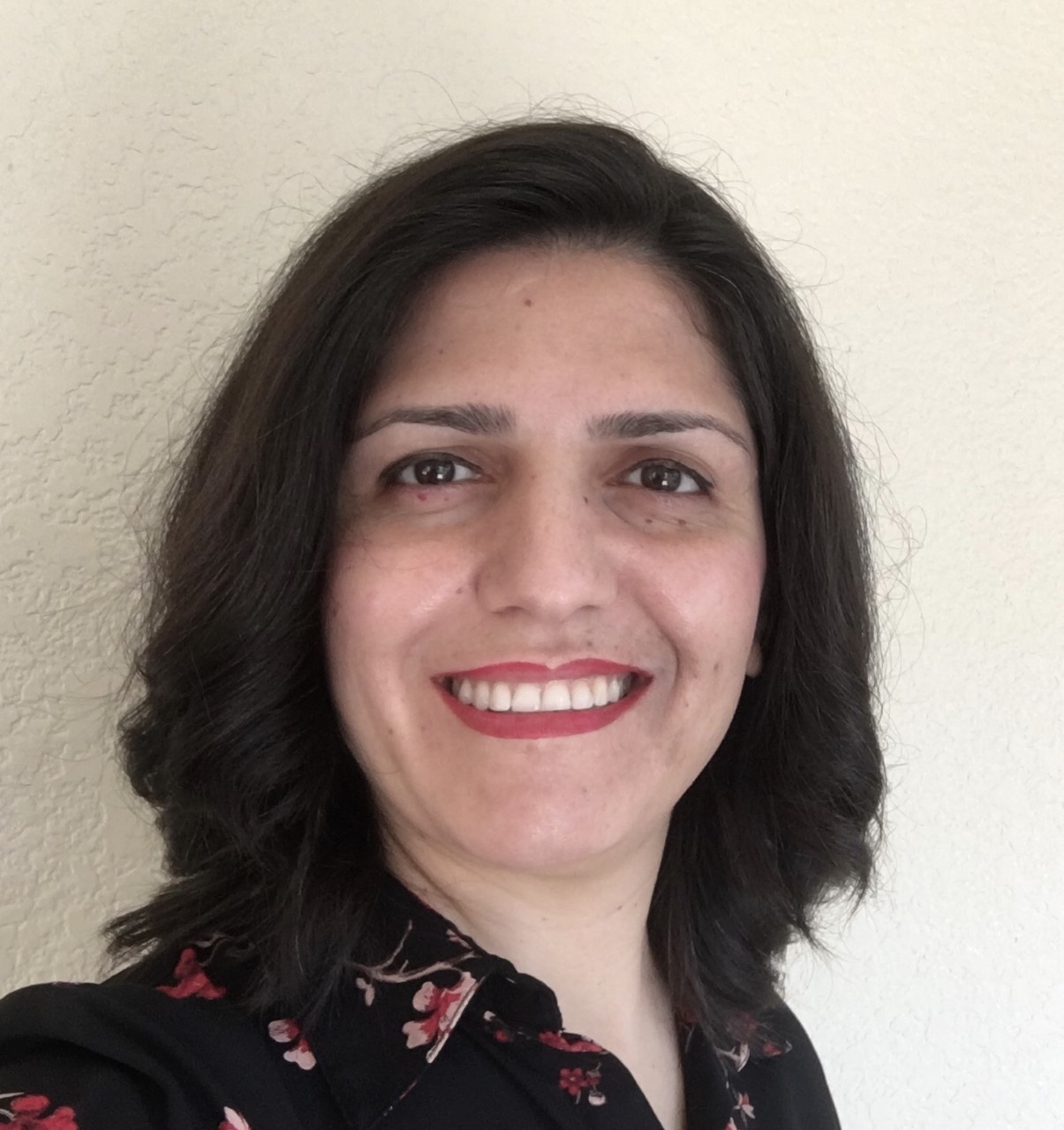
"Twenty-five years after the world wide web was created, it is now caught in the greatest controversy of its existence - surveillance.
With many concerned that governments and corporations can monitor our every move, Horizon meets the hackers and scientists whose technology is fighting back. It is a controversial technology, and some law enforcement officers believe it is leading to risk-free crime on the dark web - a place where almost anything can be bought, from guns and drugs to credit card details.
Featuring interviews with the inventor of the world wide web, Sir Tim Berners-Lee, and the co-founder of WikiLeaks, Julian Assange, Horizon delves inside the dark web."
Film Resources
The GCC Team hopes you will consider using this film in your classes or as extra credit to highlight a critical local and global issue, and to assist you we’ve gathered a list of related resources.
Dark Web:
- Gehl, R. The Case for Alternative Social Media. Social Media + Society. 2015. doi: 10.1177/2056305115604338
- Gehl RW. Power/freedom on the dark web: A digital ethnography of the Dark Web Social Network. New Media & Society. 2016;18(7):1219-1235. doi:10.1177/1461444814554900
- Gehl, R. 2018. Weaving the Dark Web: Legitimacy on Freenet, Tor, and I2P. ISBN: 9780262038263.
- Gehl R., McKelvey F. Bugging out: darknets as parasites of large-scale media objects. Media, Culture & Society. 2019;41(2):219-235. doi:10.1177/0163443718818379
- https://www.wired.com Hacker lexicon: What is the dark web?
- https://danielmiessler.com The Internet, the Deep Web, and the Dark Web
- https://www.wired.com Weed Sales on the Dark Web Surged Early in the Pandemic
- https://vpnoverview.com Websites on the Dark Web Worth Visiting
- BBC "dark web" collection
Surveillance:
- Mark Andrejevic (2007) Surveillance in the Digital Enclosure, The Communication Review, 10:4, 295-317, DOI: 10.1080/10714420701715365
- Andrejevic M. Ubiquitous Computing and the Digital Enclosure Movement. Media International Australia. 2007;125(1):106-117. doi:10.1177/1329878X0712500112
- https://www.washingtonpost.com You don't know it, but you're working for Facebook. For free.
- https://arstechnica.com Alexa and Google Home abused to eavesdrop and phish passwords
- https://www.nytimes.com Your Apps Know Where You Were Last Night, and They're Not Keeping It Secret
- https://www.forbes.com How Target Figured out a Teen Girl was Pregnant Before Her Father Did
Illegal Market Transactions/Underground Economies and how to police them
- Davies G. Shining a Light on Policing of the Dark Web: An Analysis of UK Investigatory Powers. The Journal of Criminal Law. 2020;84(5):407-426. doi:10.1177/0022018320952557
- Weber, J., Kruisbergen, E.W. Criminal markets: the dark web, money laundering and counterstrategies - An overview of the 10th Research Conference on Organized Crime. Trends Organ Crim 22, 346–356 (2019). https://doi.org/10.1007/s12117-019-09365-8
- https://blogs.lse.ac.uk/ Dark web: The economics of online drug markets
- https://www.forbes.com/ Five Key Reasons Dark Web Markets are Booming
Fall 2020
Arts & Lectures "Disinformation & Democracy"
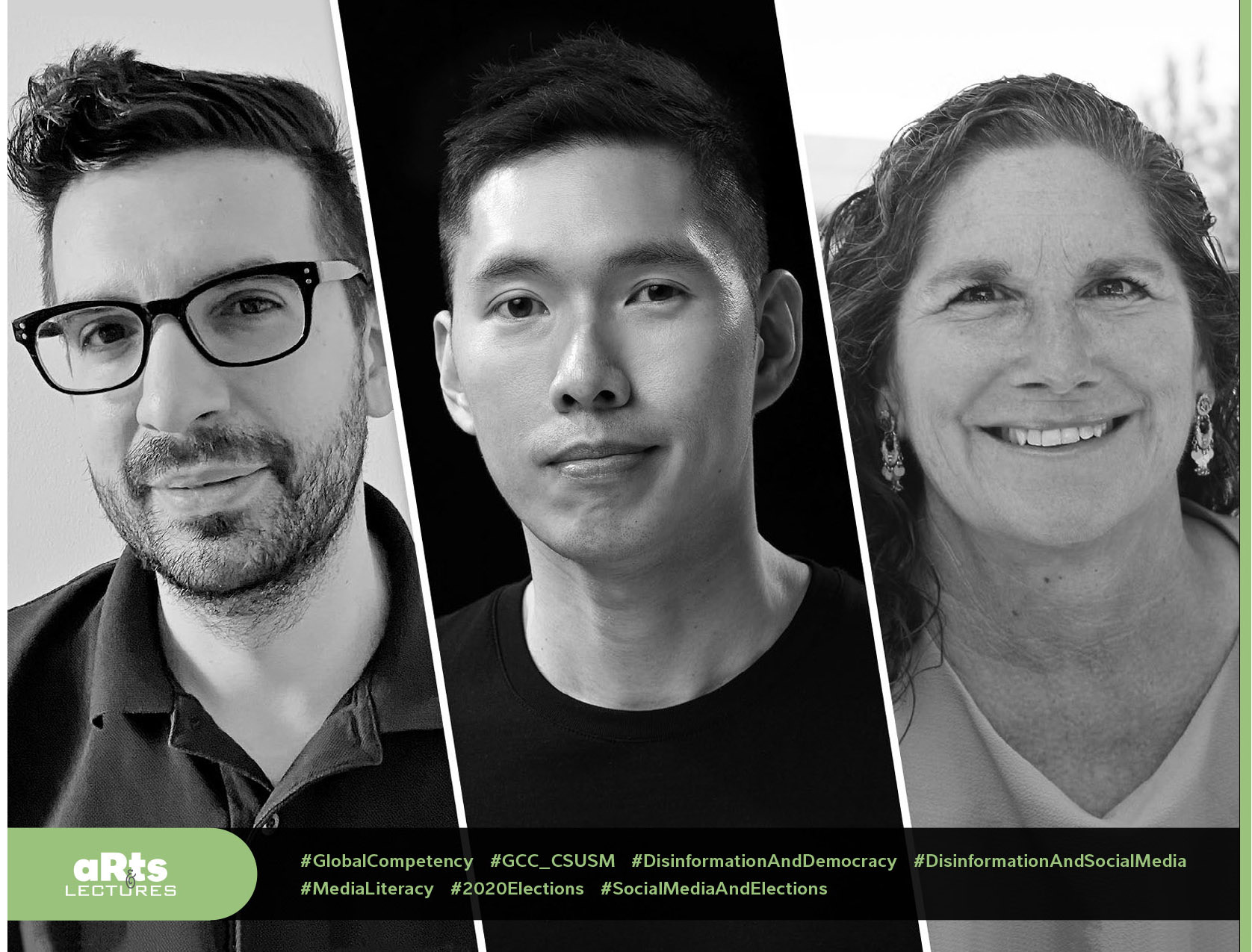
Disinformation & Democracy: Social Media and Elections Around the Globe
The unprecedented weaponizing of social media sites has led to the rise of disinformation campaigns around the globe, distorting and shaping public opinion, and affecting public policy, elections, governments, civil society, and democratic processes. At least 70 countries around the globe have been affected by social media manipulation. The Philippines, for example, has been called “patient zero” when it comes the weaponization of social media during the 2016 elections. Since then, disinformation campaigns have led to the genocide of Rohingya in Myanmar, false information regarding Brexit, and Russian interference in the U.S. elections. The panel discussion aims to: provide the historical context and political analysis of propaganda in the age of social media; discuss how social media is weaponized by disinformation campaigns; examine the role of social media companies and governments in promoting and combatting disinformation; and equip participants with media literacy tools.
Panelists:
- Anthony Nadler is Associate Professor of Media and Communication Studies at Ursinus College and Research Fellow at Tow Center for Digital Journalism, Columbia University. His research focuses on conservative news, media and populism, and debates surrounding targeted advertising and civic culture in a digital media landscape. He is the author of Making the News Popular (University of Illinois Press, 2016) and co-editor of News on the Right: Studying Conservative News Cultures (Oxford University Press, 2019).
- Jonathan Corpus Ong is Associate Professor of Global Digital Media at the University of Massachusetts at Amherst. He is Co-Editor-in-Chief of the 20 year-old media studies journal Television & New Media. He has published 2 books and over 20 journal articles in his research areas of global media ethics, digital politics, and the anthropology of humanitarianism. His latest research takes a production studies approach to digital disinformation studies as he writes about social identities and moral justifications of producers of “fake news”.
- Kimber M. Quinney is Assistant Professor of History at California State University San Marcos. She is an historian of American foreign relations. Her research explores the ways in which U.S. national identity and Americans at large (both immigrants and citizens) are affected by the conduct of U.S. foreign policy. She is especially interested in the nexus between national security and democracy. Relevant publications include “Teaching the History of the Cold War through the Lens of Immigration” (The History Teacher, 2018) and “The Balancing Act: Security, Freedom, and Privacy from Reagan to Trump” in Understanding and Teaching Recent American History since 1980 (University of Wisconsin Press, forthcoming).
Resources and related content:
Books
- This is Not Propaganda by Peter Pomerantsev (ft. Jonathan Corpus Ong)
- Making the News Popular by Anthony Nadler
- News on the Right: Studying Conservative News Cultures edited by A.J. Bauer and Anthony M. Nadler
Events/Workshops/Organizations
- The Great Hack
- The Social Dilemma
- Spotlight
- United States of Conspiracy
- The pros and cons of digital life
- Do Not Track
- Fake: Searching for Truth in the Age of Misinformation
- Hate Thy Neighbor
- CSUSM Global Commitment Committee: @csusm_gcc
- CSUSM Arts & Lectures: @csusm_artsandlectures
- #DisinformationAndDemocracy
- #DisinformationAndSocialMedia
- #MediaLiteracy
- #2020Elections
- #SocialMediaAndElections
The Cleaners
The CHABSS Global Commitment Committee is pleased to announce our Fall 2020 Film. The fall semester's film, "The Cleaners," focuses on social and psychological impacts of the Internet.
Content warning: The film tracks workers in the Philippines who spend their days looking at graphic content, including terrorist videos, political propaganda, self-harm videos, and child pornography. The film discusses and/or includes images of death, abuse, war, torture, and nudity. Conversations also include sexual language, trauma, PTSD, and suicide.
Wednesday, November 18, 5:30-8:00 pm - Virtual Watch Party. An RSVP is required to attend the watch party and panel discussion.
Panelists:
- Dr. Aleksandria Grabow, Assistant Professor, Psychology and PI, Trauma and Healing Lab at CSUSM
- Dr. Sarah Roberts, Associate Professor, Information Studies, UCLA. Dr. Roberts' Illusion of Volition website.
- Dr. Xiaoye She, Assitant Professor, Political Science, CSUSM
"Enter a hidden third world shadow industry of digital cleaning, where the Internet rids itself of what it doesn‘t like. Here we meet five “digital scavengers”, among thousands of people outsourced from Silicon Valley, whose job is to delete “inappropriate” content of the net. In a parallel struggle, we meet people around the globe whose lives are dramatically affected by online censorship. A typical “cleaner” must observe and rate thousands of often deeply disturbing images and videos every day, leading to lasting psychological impacts.
Yet underneath their work lie profound questions around what makes an image art or propaganda and what defines journalism. Where exactly is the point of balance for social media to be neither an unlegislated space nor a forum rife with censorship? THE CLEANERS struggles to come to terms with this new and disconcerting paradigm. Evolving from a shared social vision of a global village to a web of fake news and radicalization, the film charts the rise and fall of social media’s utopian ideology."
Filmmaker Q&A with Mortiz Reisewieck and Hans Block with Craig Phillips on the PBS independent Lens site
Film Resources
The GCC Team hopes you will consider using this film in your classes or as extra credit to highlight a critical local and global issue, and to assist you we’ve gathered a list of related resources.
PBS Independent Lens
Journal Articles and Book Chapters
- Roberts, S.T. (2018). Digital detritus: ‘Error’ and the logic of opacity in social media content moderation. First Monday, 23(3). http://firstmonday.org/ojs/index.php/fm/article/view/8283/6649
- Roberts, S.T. (2016). Digital refuse: Canadian garbage, commercial content moderation and the global circulation of social media’s waste. Wi: Journal of Mobile Media, 10(1), p. 1-18.http://wi.mobilities.ca/digitalrefuse/
- Roberts, S.T. (2016). Commercial content moderation: Digital laborers’ dirty work. In Noble, S.U. and Tynes, B. (Eds.), The intersectional internet: Race, sex, class and culture online (pp. 147-159). New York: Peter Lang. Download Digital Laborers' Dirty Work.
Popular Media
- What happened when humans stopped managing social media content, Politico
- Facebook will pay $52 million in settlement with moderators who developed PTSD on the job, The Verge
- The Laborers Who Keep Dick Pics and Beheadings Out of Your Facebook Feed, Wired
Spring 2020
The True Cost
Panelists:
- Maggie Kay, Maggie Kay Foundation & CSUSM Global Supply Chain Management graduate
- Laura Hall, Partner, Whyz Partners
- Lisa R. Shaffer, PhD, MBA, Rady School of Management, UCSD
"This is a story about clothing. It’s about the clothes we wear, the people who make them, and the impact the industry is having on our world. The price of clothing has been decreasing for decades, while the human and environmental costs have grown dramatically. The True Cost is a groundbreaking documentary film that pulls back the curtain on the untold story and asks us to consider, who really pays the price for our clothing?
Filmed in countries all over the world, from the brightest runways to the darkest slums, and featuring interviews with the world’s leading influencers including Stella McCartney, Livia Firth and Vandana Shiva, The True Cost is an unprecedented project that invites us on an eye opening journey around the world and into the lives of the many people and places behind our clothes."
You can find more information about the film, the impacts of our clothing, and how to shop smarter at https://truecostmovie.com/about/.
Film Resources
The GCC Team hopes you will consider using this film in your classes or as extra credit to highlight a critical local and global issue, and to assist you we’ve gathered a list of related resources.
Filmmaker Provided Resources
- The True Cost (Links to fantastic introductory information and organization associated with Fast Fashion and its societal impacts)
Peer-Reviewed Articles
Economics:
- "The Value of Fast Fashion: Quick Response, Enhanced Design, and Strategic Consumer Behavior." Management Science4 (2011): 778-95. Web., https://csusm-primo.hosted.exlibrisgroup.com/permalink/f/17n5p6l/TN_informsmnsc.1100.1303
- Li, Yongjian, Zhao, Xiukun, Shi, Dan, and Li, Xiang. "Governance of Sustainable Supply Chains in the Fast Fashion Industry." European Management Journal 32.5 (2014): 823-36. Web., https://csusm-primo.hosted.exlibrisgroup.com/permalink/f/17n5p6l/TN_elsevier_sdoi_10_1016_j_emj_2014_03_001
- Li, Jian, Tsan-Ming Choi, and T. C. Edwin Cheng. "Mean Variance Analysis of Fast Fashion Supply Chains With Returns Policy." Ieee Transactions On Systems Man Cybernetics-Systems 44.4 (2014): 422-34. Web., https://csusm-primo.hosted.exlibrisgroup.com/permalink/f/17n5p6l/TN_wos000333118300003
Culture and Society:
- Anastasia, Laura. "The High Cost of Fast Fashion: The Latest Trends Have Never Been More Affordable--but All Those Cheap Clothes Come at a Price for Impoverished Workers around the World." Junior Scholastic/Current Events 120.1 (2017): 6. Web., https://csusm-primo.hosted.exlibrisgroup.com/permalink/f/17n5p6l/TN_gale_ofa513758920
- Joy, Annamma, John F Sherry, Alladi Venkatesh, Jeff Wang, and Ricky Chan. "Fast Fashion, Sustainability, and the Ethical Appeal of Luxury Brands." Fashion Theory 16.3 (2012): 273-95. Web., https://csusm-primo.hosted.exlibrisgroup.com/permalink/f/17n5p6l/TN_informaworld_s10_2752_175174112X13340749707123
- Tokatli, Nebahat, Ömür Kizilgün, and Jinsook Erin Cho. "The Clothing Industry in Istanbul in the Era of Globalisation and Fast Fashion." Urban Studies 48.6 (2011): 1201-215. Web., https://www-jstor-org.ezproxy.csusm.edu/stable/43082005?seq=1
Environment:
- Bick, Rachel, Halsey, Erika, and Ekenga, Christine C. "The Global Environmental Injustice of Fast Fashion." Environmental Health: A Global Access Science Source 17.1 (2018): 92. Web., https://csusm-primo.hosted.exlibrisgroup.com/permalink/f/17n5p6l/TN_gale_hrca569155838
- Gunner, Alan. "Fast Fashion and Its Impact on the Environment." Logistics and Transport Focus 21.5 (2019): 40. Web., https://csusm-primo.hosted.exlibrisgroup.com/permalink/f/17n5p6l/TN_proquest2241327625
- Cook, Sasikarn, and Jennifer Yurchisin. "Fast Fashion Environments: Consumer’s Heaven or Retailer’s Nightmare?" International Journal of Retail & Distribution Management 45.2 (2017): 143-57. Web., https://csusm-primo.hosted.exlibrisgroup.com/permalink/f/17n5p6l/TN_proquest1861136833
News Stories
Politics and Economics:
- Inverse, “H & M and Fast Fashion”; https://www.inverse.com/innovation/hm-circulose-renewcell
- The Guardian, “National Shame of Fast Fashion”, https://www.theguardian.com/global-development/2020/jan/23/national-shame-mp-sounds-alarm-over-uk-fast-fashion-factories
- Forbes, “The Sneaky Cost of Fast Fashion”, https://www.forbes.com/sites/syamameagher/2020/02/05/the-not-so-hidden-ethical-cost-of-fast-fashion-sneaky-sweatshops-in-our-own-backyard/
- Prospect, “The Fight to Regulate UK Fast Fashion”, https://www.prospectmagazine.co.uk/politics/200-tonnes-of-waste-a-year-the-inside-story-of-the-fight-to-regulate-uk-fast-fashion
- New York Times, “MPs Fight to Investigate Fast Fashion”, https://www.bbc.com/news/uk-politics-44565755
Culture and Society:
- Vox, “Fast Fashion Explained”, https://www.vox.com/the-goods/2020/2/3/21080364/fast-fashion-h-and-m-zara
- BBC, “Can Fast Fashion Ever Be Ethical and Cheap?”, https://www.bbc.com/news/av/business-51243912/fast-fashion-can-it-ever-be-ethical-and-cheap
- Cosmopolitan, “Fast Fashion is a Toxic Relationship”, https://www.cosmopolitan.com/uk/fashion/style/a30243970/fast-fashion-toxic-relationship/
Environment:
- TreeHugger, “Greenwashing and Fast Fashion
- WBUR, “Fast Fashion and the Environment”
- Vox, “Fashion has a misinformation problem. That’s bad for the environment”
- Eco-Business, “Fast Fashion and Sustainable Business Model”
- The Avondhu, “Leading Causes of Pollution”
Essays
Politics and Economics:
Culture and Society:
- The Good Trade, “What is Fast Fashion, Anyway?”
- The Good Trade, “5 Barriers to Shopping Responsibly and How to Overcome Them”
- The Good Trade, “What it Means to Shop According to Your Values---And How to Do It”
- Know the Origin, “Fast Fashion and Human Trafficking”
- Dressember, “How Does Ethical Fashion Play into Human Trafficking?”
- The Conversation, “Fashion is Modern Slavery”
- The Good Trade, “The Truth Behind Fast Fashion and Human Trafficking”
Environment:
- New York Times, “How Fast Fashion is Destroying the Environment”
- Los Angeles Times, “Does Fast Fashion Need to Die to Save the Environment?”
Videos
Politics and Economics:






